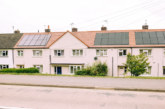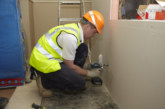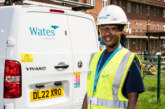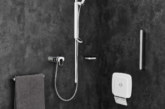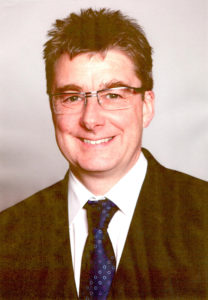 Social landlords face the difficult task of finding appropriate accommodation for the UK’s ageing population, in the face of significant shortages of properties developed for this demographic. Paul Botsford, Head of Assisted Living at property technologists Secure, discusses how new smart technology can make more homes suitable for older people, helping to ease the pressure on social landlords.
Social landlords face the difficult task of finding appropriate accommodation for the UK’s ageing population, in the face of significant shortages of properties developed for this demographic. Paul Botsford, Head of Assisted Living at property technologists Secure, discusses how new smart technology can make more homes suitable for older people, helping to ease the pressure on social landlords.
According to the ONS, a mixture of falling birth rates and longer life expectancy, means that by 2039, nearly a quarter of the whole population will be aged over 65.
The suitability of housing stock is important to the health and wellbeing of older people, driving the prevention agenda and supporting independence within a socially integrated environment to reduce demand on the NHS and adult care services, however there’s a significant shortage of social homes in the UK designed and built for older people.
The Housing Learning and Improvement Network (HLIN) reports that just 2% of English housing stock is retirement housing, and the number of homes being built specifically for older people has decreased from 30,000 per year in the 1980s to 8,000 per year today. In other words, our housing stock is far from future-proofed, and for the many older people living in homes that don’t meet their needs, the consequences can be devastating, such as serious injury, declining health, more time in primary care, or being prematurely forced into residential care.
The rise of extra care
Supported housing schemes, such as extra care facilities, are proving a popular option for residents and social landlords alike. These self-contained homes, offer residents independence, whilst also providing community, support, such as a daily check in service, and regular care visits. Extra care facilities also include a range of technology enabled care (TEC) to help support residents, such as pendant alarms for falls, and emergency call systems.
Despite the proven benefits of these facilities and an increase in the numbers of specialist units being built — Knight Frank estimates that retirement housing will grow by 10% over the next five years to around 820,000 — development isn’t keeping pace with demand. The HLIN calculates that on present plans, there will be an overall shortage of 400,000 specialist units and 200,000 care beds by 2035.
Pressure on social housing
Social housing providers are at the sharp end of finding appropriate housing for tenants, who are disproportionately older and in poorer health than the general population. According to Kings Fund, a charitable organisation working to improve health and care in England, nearly one in three social housing residents is over the age of 65, and one in two have a long-term condition or disability, compared to one in four in other types of housing. The statistics paint a bleak picture, however social housing providers and tech developers are committed to seeking innovative solutions to tackle these issues.
New technology brings extra care home
At Secure, we have used our knowledge in connected property-technology, to create Beanbag Care, a suite of intelligent independent living solutions that enable social housing providers to bring many of the benefits of extra care to any property type, giving them the flexibility to make more of their housing stock suitable for older people.
Beanbag Care uses a range of unobtrusive sensors in the home to constantly monitor movement, passivity and sleep patterns, reliably alerting nominated family members and Secure’s response centre to any issues. This is particularly useful in identifying falls for people who do not want to wear a traditional pendant alarm.
Smart heat controls and environmental monitoring, automatically checks the temperature, humidity and CO2 levels, keeping tenants safe and comfortable and helping to reduce fuel poverty, reducing the risk of mould and protecting against carbon monoxide poisoning.
Via a tablet, Beanbag Care supports communication between the tenant, social housing providers, carers, family members and the community, as it offers proactive messaging, supports social inclusion and links to landlords housing portals. For those social landlords that provide domiciliary care services to tenants, Beanbag Care provides digital scheduling and allows the tenant or their family members to provide feedback after every care visit, ensuring that any issues are picked up quickly.
The technology can be easily deployed into any property type, offering social landlords the flexibility to transform a tenant’s home, an apartment, or even an entire block of apartments, into extra care accommodation. This enables tenants to not only live safely and independently, but enables them to remain either in their homes, or in a property that has been swiftly transformed to suit their needs.
There’s no getting away from the fact that our ageing population presents significant challenges, but technology can bring extra care home and help to ease the pressure on social landlords, whilst enabling older people to live independently and safely.


